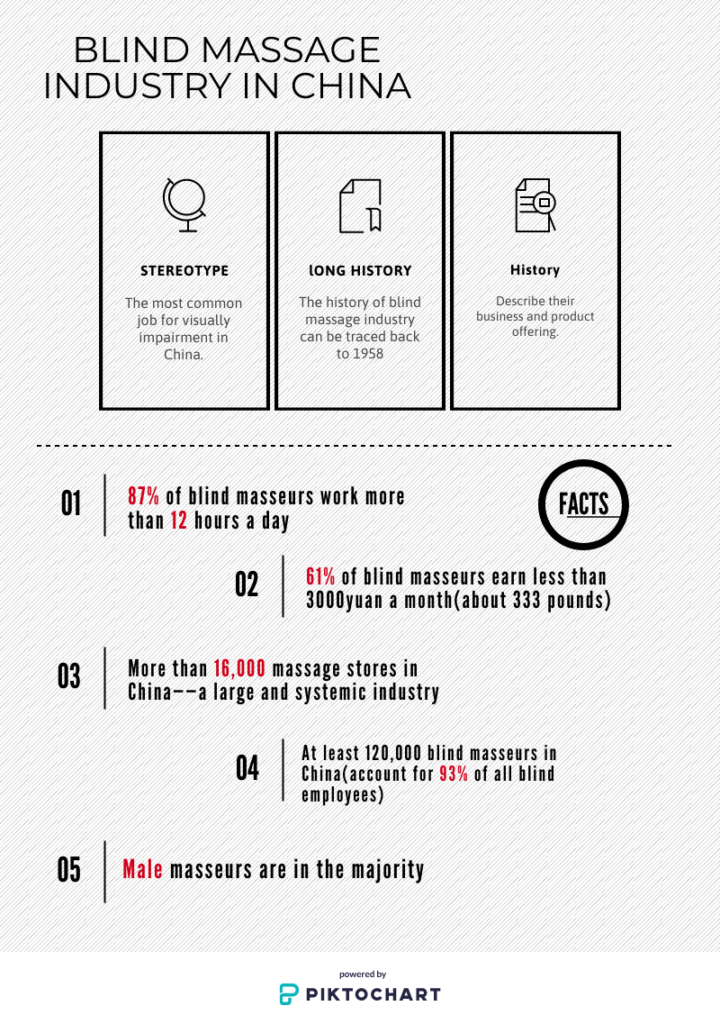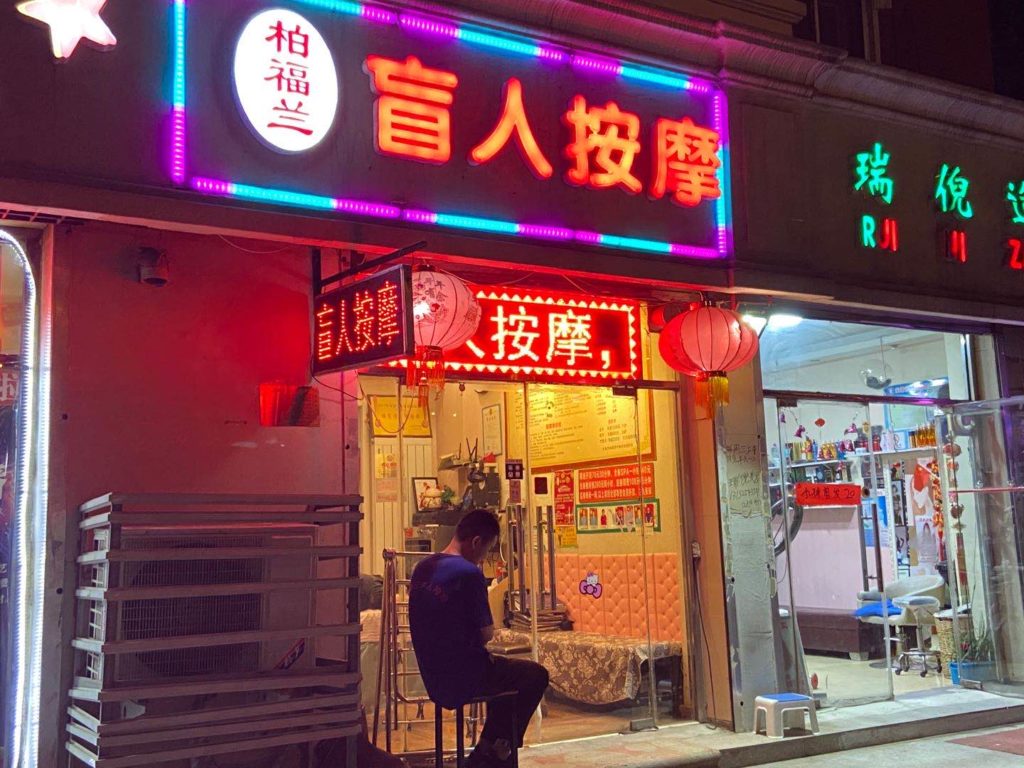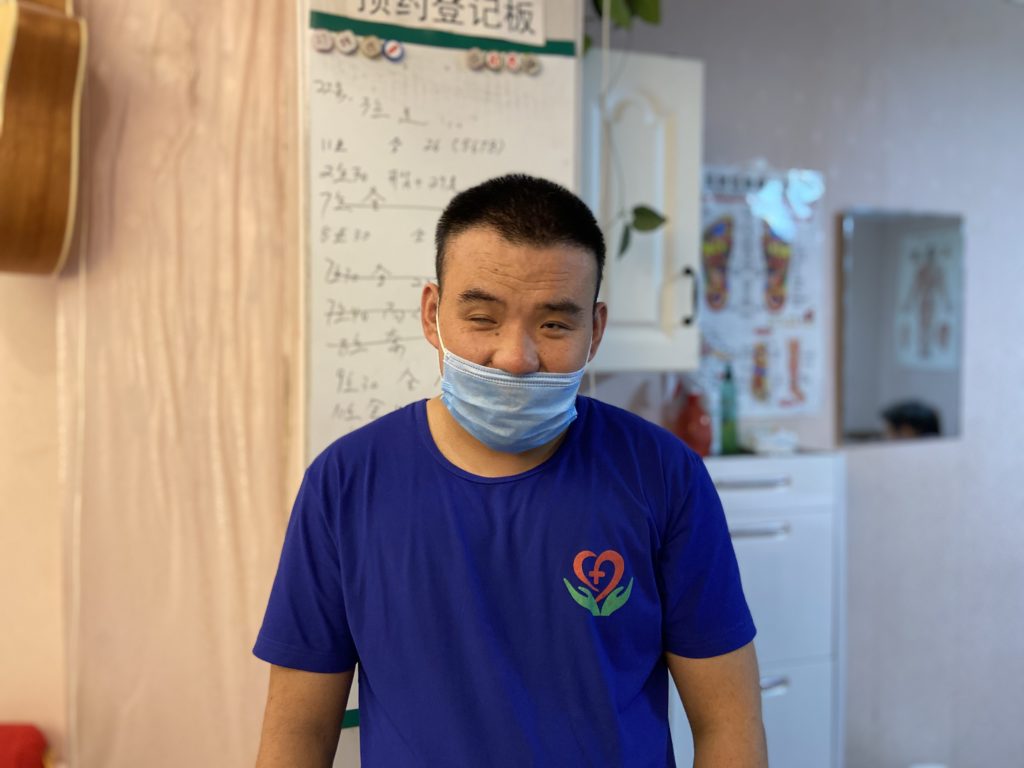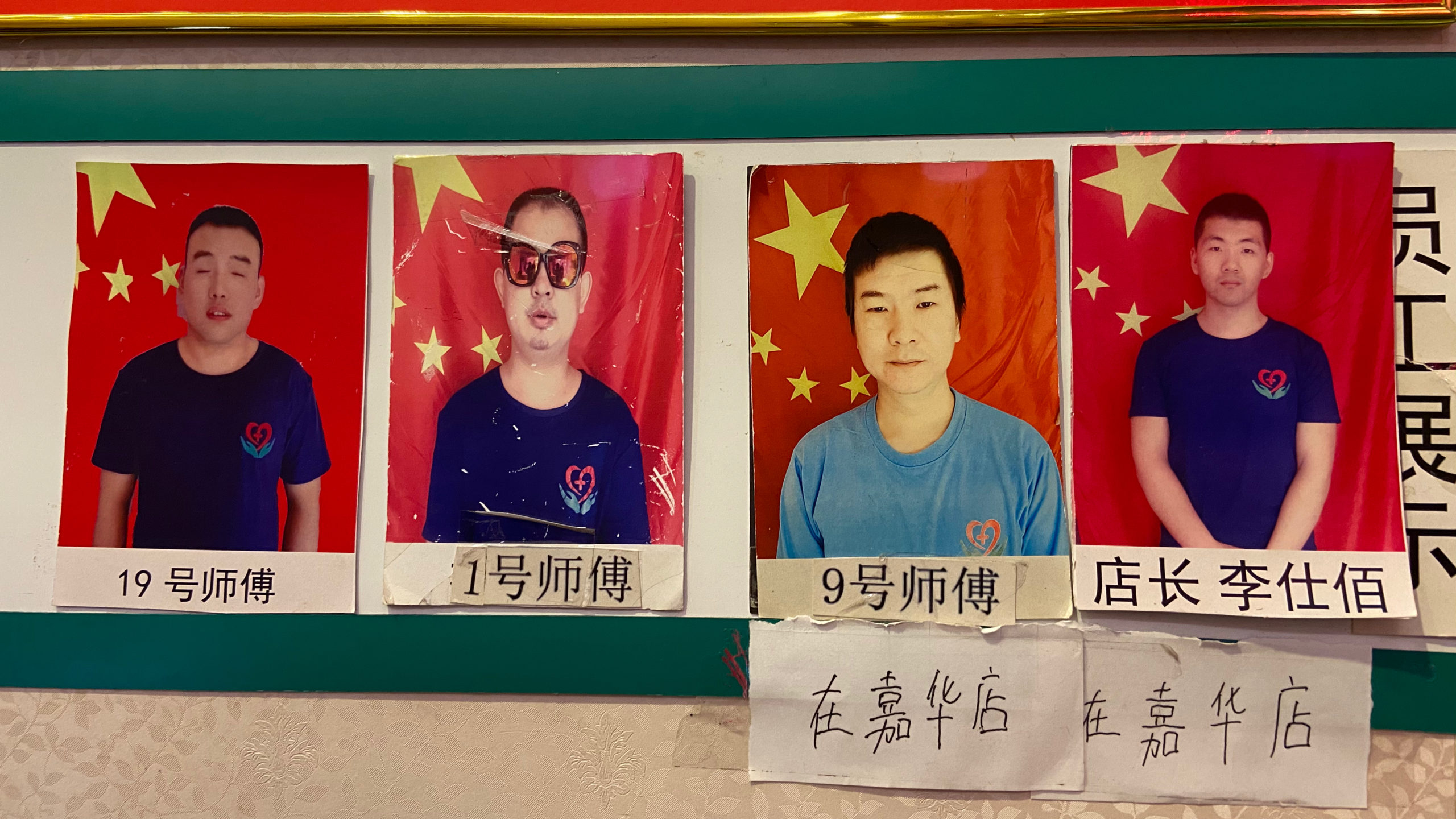Many visually impaired people in China are working in massage industry. Is this traditional role an opportunity for them or something that prevents a change in social attitudes?
Ding-ding, ding-ding, it is 6:30am, the clock goes off and Ran Zhang get up as usual. For he majority of office workers, morning means a race with time, but for Ran, is much more like a battle.
Every morning, dressing, washing, and having a breakfast, moving through bedroom to kitchen, everything seems in order, however, even in home where she knows best, it should takes longer time to finish and every sharp corner seems a weapon that may damage her.
“I’m unlucky but to some extent, I’m lucky.” For a long period of time and even now, she believed this sentence firmly.
Change into a uniform white coat and clear up medical equipment, Ran begins her new day’s work and wait for her patients.
Since graduated from Beijing Union University in 2016, Ran has worked at a community health service where is three kilometers from her home and work as a blind medical masseuse. It is a job that most of the visually impaired people will select in China.
There are two types of blind massage in China: one for medical and one for health care. Only a very few people like Ran could have a chance to work in medical institutions and most of the blind masseurs have to work for private massage stores and get uncertain salaries. She said, “I’m so proud that because of receive professional medical knowledge at university, I become one of the first blind people who is able to work in hospitals.”
Ran was born with visual impairment and the only image in her mind are some moving shadows under very strong light. She doubted herself whether she is a burden for her parents when she was young and she also used to complain to her mother why she can’t go out like other children and why she can’t see anything.
Ran believed that for a child is too cruel, everyday, getting up for her means that from one darkness to another.
“You are the most important gift for us,” her parents’ cherish changed Ran’s life, for as long as she could remember, her mother repeated it to her. She said, “I wouldn’t be who I am without my parents.” Every time when she wants to give up, her parents give her support and encourage her.
Ran admitted that there is a factor that cannot be ignored. She was born in Beijing, the capital city of China, which means that visually impaired group have a relatively higher acceptance in this city and it gives this group more access to education.
She lived up to her parents’ expectations, she passed the test and got a qualification certificate for blind medical massage in 2016. “This job brings too much for me,” said Ran. Last year, she got acquainted with a doctor who has the same situation and got married.

In China, the number of visually impaired people has over 17 million which means about one in 80 have problem on their eyes. In order to solve the employment problem for visually impaired people, the China Welfare Association established various skills training classes for them in 1955, however, combining with their own characteristics and the encouragement of the government, blind massage became the only preserved and systematized job for the blind for a long time. It is a chance for many blind people and it give them an opportunity to work through their own hard work but it was then from that time, this group was labeled and it seemed that the blind man is bound to the massage. Until now, blind massage is still a main job for the majority of visually impaired people.
Compared with Ran who works for medical institution, blind masseur works for sanitarian massage is more general in China but more laborious especially for physical demands. People who work as sanitarian masseurs do not need to be qualified. Some of them even not receive much professional training. They choose to go to big cities, find a private massage store and become an apprentice.
In the room of less than 50 square meters, there are several massage bed neatly arranged. At 10:00pm, the business is still good at massage store, the shop sign with neon lights shone brightly in the night. In the crowded room, the sound of guests chatting from time to time can be heard.

Using his fingers, calm and elbow, Shibai Li skillfully varied his methods. At June, even it is night, the weather is still sultry, the fan keeps blowing, his sweat but can not stop down.
Shibai was born in a village in Langfang, a small third-tier city in China. When he was a baby, he had an illness. Due to the poor medical facilities in the countryside and ignorance of his parents, the doctor used wrong medicine, leading to his blindness.
The 28-year-old man has been working as blind masseur for 12 years in Beijing. He said, in his village, before junior high school, they learned cultural knowledge in blind school like other students. For them, high school is a “watershed”. Some people choose to continue to study in senior high school and prepare for go to college. “In our village, most of the visually impaired people began to learn massage at that time and make money for the family,” he added.
[During the interview],his phone rang suddenly, “It is my mother,” he said . Using his local dialect, he simply asked her mother’s health and he hung up the phone. “It is my mother,” he repeated, “she always worried about me and asked me to go back to home and find a job. When asked impression of his mother, he said: “I was too young when I got blind and the impression has been blurred.”

Shibai said, “my parents are typical Chinese farmer, they have no knowledge, no culture,no money, and no rights. I never blame them because it was not their fault but my mother has been feeling guilty all these years.”
At interval time, he always rub his deformed thumb. He said, “it is an old trouble. When I began to learn massage when I was 16, I can’t master the power and correct method. I had to learn more than ten hours a day and suffered a lot of pain.” Some of his classmates together with him can not stand the handwork and choose to give up.
“No. 2 technicians, No.2 technicians,” the manager repeated calling Shibai and he said: “Look, it’s almost time to get off work and here come some customers.” It was nearly 23:00 and he has just eaten a few mouthfuls of his supper before he returned to post.
Their meal time is not fixed. Shibai said they all eat at staggered times to reduce customers’ waiting time. “When we are busy, it takes three or four times to finish a meal,”he said. Working long hours has made more and more visually impaired people want to give up this job especially for young masseurs, but the choices for them are limited and few people have courage to start anew.
“I have no other choice. Since I could remember things, I listened to my parents always saying in private when they would send me to learn massage. For me, it is the only choice and maybe a right way for me and for my family,” said Shibai.
He talked about his salary without any hesitation. He said he could get about 5000 yuan (about £555) every month. Compared with his friends who work as stenographers, he said he hears that they earn good money and don’t need to work for such long hours like him (He need to work for 14 hours a day). “But I don’t have that chance, it is late” Shibai repeated several times. He used to think about change his career, but it was too difficult for him. He said: “For one reason, I don’t have academic degree, in addition, I have no capital and courage to stop my massage job and learn from scratch.”
There were several guitars hanging on the wall. Shibai said, at their spare time, they would play the guitar and sing songs together. “It seems like seeking joy admits sorrow for us.”
In recent years, blind massage is still a major employment for visually impaired group. In 2019, a total of 14,678 blind sanitarian masseurs and 7,318 medical masseurs were trained nationwide.
Shan Gao is in charge of a public welfare organization in Shanghai and he helps many visually impaired people find their satisfied jobs.
He pointed out, due to the isolation of education, the public’s awareness of person with a disability is not enough and even discrimination occurs. For visually impaired people, they are unable to do some jobs because of monotonous education and their own defects. Although proportional employment is proposed in China, there are many problems in practice. Shan said, “Employers are reluctant to take risks.” Once, he was working with a company, an employer told him: “We’d better to fine than to recruit disabled people.”
At the present stage, promotional employment in China only stays in form and fine, but does not really solve the employment problem for the disabled. In addition, the government has not taken the lead in setting an example. “We can’t see any disabled people working in government section,” said Shan.
He added the problem they face now is not only on information imbalance. For one aspect, some enterprises post job recruitment but the disabled people don’t have a channel to get, for another aspect, the majority of them is really not competent.
Therefore, the main tasks for their organization are to negotiate with the company and find suitable positions for the disabled especially for visually impaired people. They also need to conduct practical tests, and finally train them so that they can meet the job requirements. Shan said, at present, the employment of disabled people in China is mainly based on public welfare.
“We cannot deny the role and it could bring us some resources and solve some finical problems, but it was not a long-term solution. How to make disabled people gain social trust and truly integrate into the society is what our organization want to do.”
